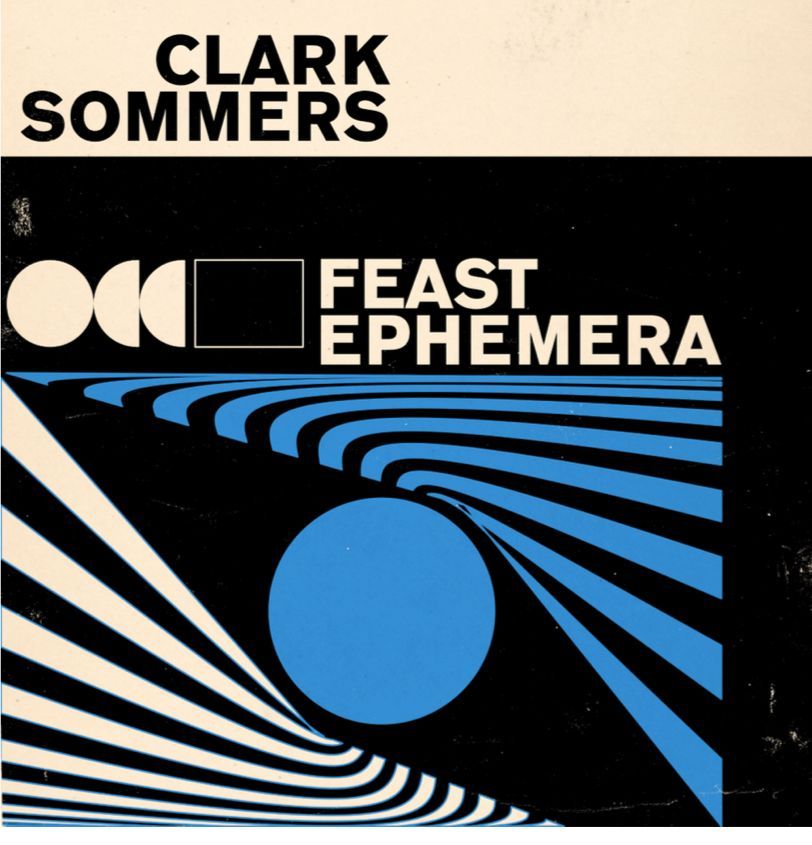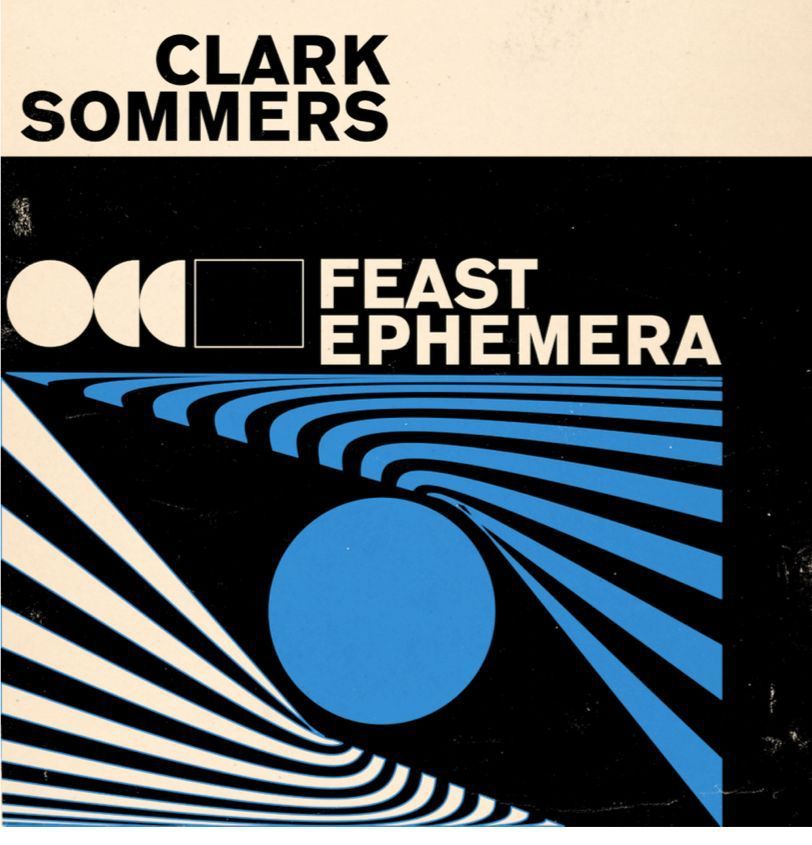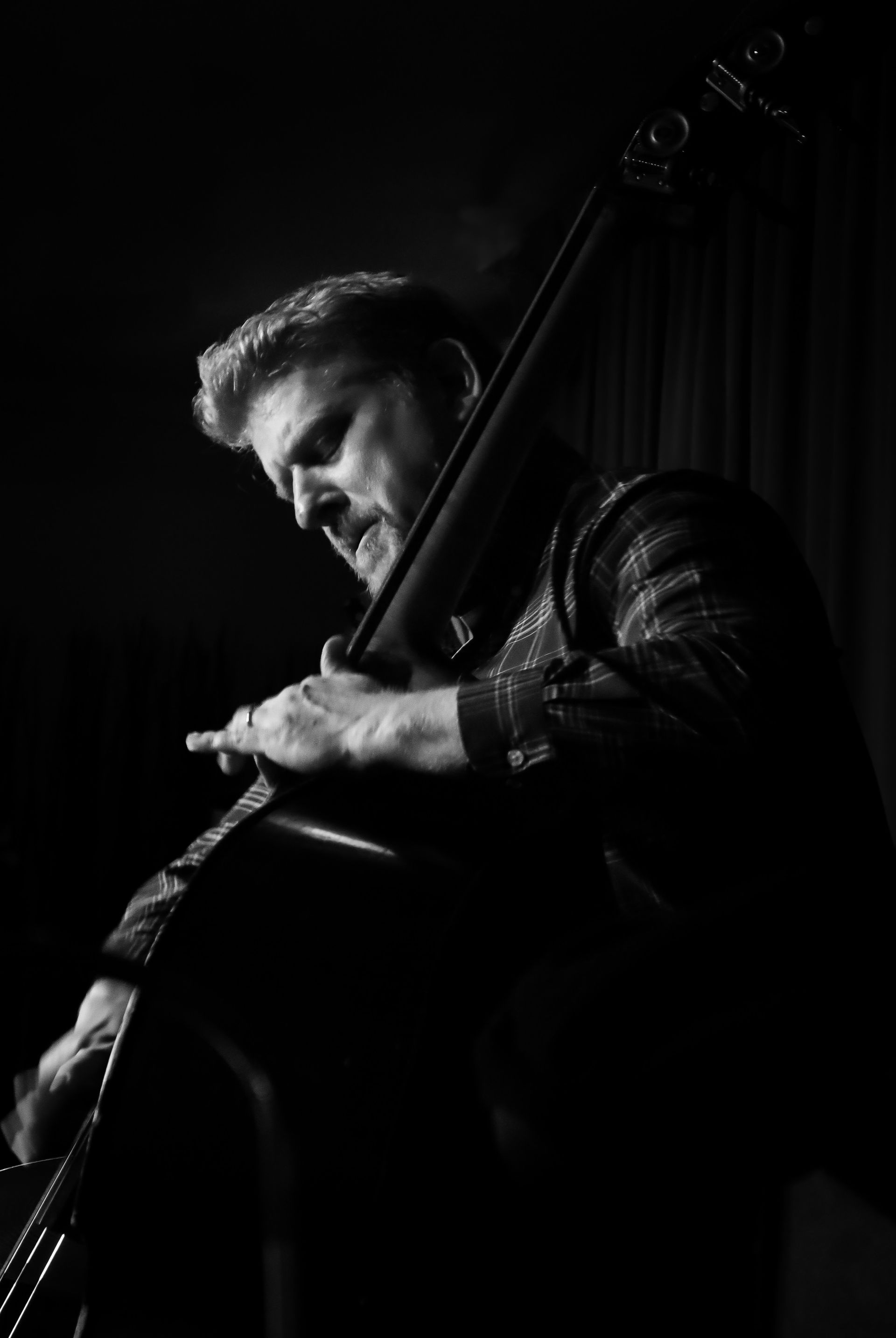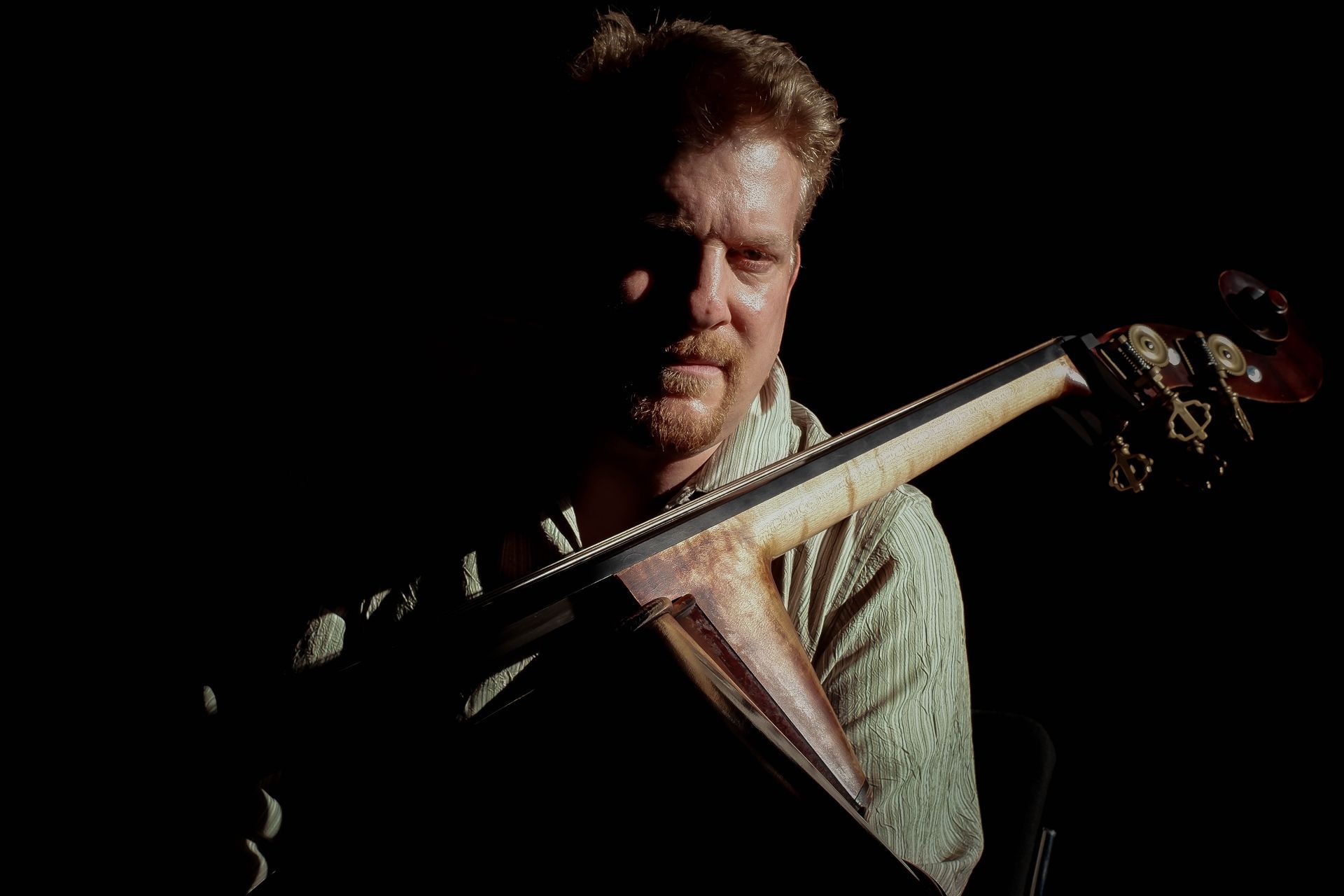Chicago Bassist/Composer CLARK SOMMERS Presents: FEAST EPHEMERA
Available Everywhere September 15, 2023 on Irabbagast Records
Feast Ephemera Features: Clark Sommers-compositions/arrangements & bass, Dana Hall-drums, Nick Mazzarella-alto saxophone, Geof Bradfield-bass clarinet, soprano & tenor saxophones, Chris Madsen-tenor saxophone, John Wojciechowski-C & alto flutes and alto saxophone, Tito Carrillo, Russ Johnson-trumpet, Joel Adams, Andy Baker-trombone, Stu Mindeman-piano/keyboards, Scott Hesse-guitar
“Sommers is always a treat, with his gloriously palpable sound and infallible musicality . . .”
– John Corbett, Chicago Reader, on ba(SH)
“Possessed of a massive, tensile sound . . . Sommers makes emphatic musical decisions”
– Michael Jackson, DownBeat Magazine-Four Star Review on ba(SH)
”Clark Sommers rings true and honest in tone. The golden color pours a solid foundation to the timber of the group.” – All About Jazz
First call Chicago bassist, Clark Sommers, perhaps best known for his long, and ongoing, tenure with Kurt Elling, has an enviable CV, with appearances on stage and in studio with The Chicago Yestet, Jeff Parker, Matt Gold, Darrell Grant, Joe Locke, Gary Versace and many others. He has also led his own ensembles including his open-sky trio Ba(SH) and the quintet, Clark Sommers Lens. As busy and in demand as Sommers is, a true artist keeps growing and expanding; they continually search for outlets for creative impulses that are simply boiling over inside of them. And that is precisely what Sommers did. “I wanted to get deeper into writing,” said Sommers. “I wanted to see what I could do if I had the capacity to add more texture to a group – to go further into the exploration of harmonic possibilities, and to try spreading out the sounds using different instruments.” With that in mind, he enrolled as a Masters student in composition at DePaul University, with the aim of enlarging his tonal palette while expanding the scope of his work.
Sommers still had no plans to write charts for a traditional jazz orchestra, or to write such an expansive suite, as he has done here. (“Man, why would I do that now, in 2020? What’s the point?” he remembers thinking.) He admires the power and sweep of the classic big bands led by Ellington and Basie – who wouldn’t? – and the unsurpassed arrangements that Nelson Riddle wrote for the likes of Fitzgerald and Sinatra; he just didn’t see those as a model for himself. But, he was intrigued by the 12-piece band in the composition workshop at DePaul run by his Ba(SH) bandmate, the formidable drummer, composer and long-time friend and collaborator Dana Hall. “I really started to get into this more streamlined version of a big band,” says Sommers; “I felt I could do more with counterpoint in a way that wasn't so dense – like I could keep some of the small-group ethos but with a few more players.”
During the workshop, Sommers attempted writing a new introduction for one of his older pieces, and inadvertently composed an entirely new piece, “Pedals,” which contemplatively treats the listener to tiers of burnished brass, solos from trombonist Joel Adams and saxophonist Nick Mazzarella, and then the unexpected timbres of organ and flute. Subtly authoritative, it belies the fact that it is the first composition Sommers completed for this instrumentation. Encouraged by “Pedals,” he then wrote “Chance Encounter,” and got to hear it played at DePaul, in March, 2020 – only days before COVID-19 upended the world.
The pandemic made virtual hermits of almost everyone, and especially those whose lives and work revolved around real-time interplay and synergistic creativity – you know, musicians. Cut off from audiences and colleagues, going a bit stir-crazy at home, Sommers channeled his energy and frustration into his new avocation. He began to write the pieces heard on Feast Ephemera – pieces that quickly gained a significance beyond the music itself. Over time and through diligent hard work, Sommers found himself with a suite of music, with each composition a chapter in this story, told from the heart by Sommers through rhythm, harmony, melody, counterpoint, and many other ingredients that make music like this such a joyful, life-affirming pleasure to listen to.
The music on Feast Ephemera reflects on Sommers’ life over the past two decades, and the love, camaraderie and solidarity that he shares with his family in music (of which, eleven are featured on this album). He wrote this music while meditating and reflecting on his experiences with each of them. He wondered when or even if they might get back to working together – back to their neighborhood. (The “ephemeral” nature of these reflections inspired the name of the band and the album.) And then he thought, “How can I be creative with them in mind, kind of on their behalf? How can I fit them into the music in a way that I hear naturally?” The answer lies in the compositions and the performances on this album.
Sommers wanted to capture the memories and the experiences that sustained him during the pandemic’s amorphous twilight. To do that, he sought to convey the personalities of the musicians – not only by giving each of them solo space, but also by utilizing their unique artistic personae within the ensemble writing. This proved easier than you might think: as the music evolved, he began “hearing” their styles, and connections seemed to spring to mind. “I let each composition guide me to whom I thought could best represent it” as a soloist, he says; the design of the piece dictated whether to highlight the specific sound of John Wojciechowski’s flute, or Geof Bradfield’s bass clarinet, or Tito Carrillo vis-à-vis Russ Johnson on trumpet.
The process allowed Sommers to access an interior dialog with absent friends, but it didn’t stop there. “I was only three months into my graduate studies. I didn’t know much about arranging then. So I would get on the phone with various people. I would ask Chris Madsen and he'd say, ‘No, man, you’ve got to give more to the saxophones here.’ I would call Scott Hesse and ask about a certain guitar voicing. It was a way for me to stay engaged with these players, and to think about how they could bring this to life. And it became an important driving force for me to finish the piece and just bring these people together to record it.”
You’ll notice that Sommers takes no solos on this album. He didn’t have to; he expresses himself throughout the work. Feast Ephemera is rigorously imagined, handsomely arranged, superbly realized – all the things that make it a long-lasting feast for the ears. Ultimately, it’s about community: these specific musicians, at a specific time and in our lives, that Clark Sommers gets to lead and enjoy from the back of the bandstand.
This press release borrows text from the album’s liner notes by the esteemed Neil Tesser





